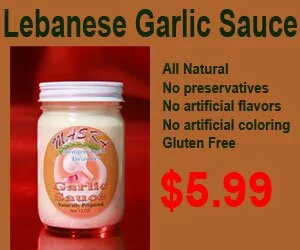Getting squirmy with the somm
Besha Rodell is a restaurant critic and blogger for LA Weekly. She blogged yesterday about an incident that occurred when she dined, along with some friends, at what she called “one of L.A.’s most highly regarded restaurants.”
From the sound of it, she and her companions had a very uncomfortable experience, and it had to do with the sommelier.
Go ahead, read her post and then come back here. Briefly, Besha and her friends can be faulted with not having asked the sommelier for the exact prices of the bottle and glasses of wine. So, in that respect, Besha doesn’t have any basis to complain about paying nearly $200 in wine costs. And since she knew in advance how “highly regarded” the restaurant was, she should have anticipated that she was going to end up spending a lot of money on vino.
On the other hand, the somm can be faulted for not telling Besha exactly how much the wines would cost. After all, “not too expensive” is in the eye of the beholder. It’s hard to pinpoint exactly who was responsible for the bad experience. There’s probably enough blame to go around for everyone to share.
When I read the article, I remembered how uncomfortable I sometimes am at restaurants with sommeliers. You’d think a wine writer like me would be able to negotiate the restaurant-somm waters with ease, but that’s not the case. There’s something that almost always makes me queasy, and I can’t quite put my finger on it.
I can relate to Besha’s not asking the somm for the specific price. She was embarrassed. Now, you can argue that she shouldn’t have been, but the fact is, lots of us are embarrassed to ask about bottle prices, unless we’re made out of money, and who is? If I were a sommelier, I like to think I’d be on the customer’s side in terms of helping him find the precise wine that suits his meal, in the most comfortable price zone. But I don’t know how somms are paid. Do they get a percentage of the bottle price? Are they under pressure to push more expensive bottles? And the tip, which is a percentage of the total bill, also goes up with more expensive wine, doesn’t it? Not knowing exactly what the somm’s motives are can make the somm-customer interaction murky and stressful. It’s almost like there’s a subtext to the conversation, with the somm prodding the customer upward in price and the customer resisting, politely and tactfully. That is not the stuff of which good restaurant experiences are built.
I don’t think the situation is the same with beer or cocktails. I mean, the customer’s relationship with a bartender is much easier than with a somm. It’s the fact that wine is so much more expensive that really distorts the dining experience. If you eat at a top restaurant, you almost feel like the servers and sommeliers and even the customers are looking at you and expecting you to spend a bundle on a bottle (or 2 or 3) of wine. (Don’t you look to see what other people are drinking? I do.) It’s like, if you don’t splurge, you risk looking like a cheapskate. I don’t know about you, but paying $120 for a bottle of wine, when the meal itself costs maybe $50, isn’t something I’m prepared to do very often. (And, as Besha knows, a bottle simply isn’t enough for a meal. You’re going to want a couple of glasses, too.)
How do you feel about the customer-sommelier experience? Does it ever make you feel weird? How do you handle it?









